Arbiter of goddesses, abductor of Helen, and skilled archer, Paris of Troy ignited the most famous war in Greek mythology; the Trojan War.

Paris of Troy: The Young Prince

Paris was born to King Priam and Queen Hecuba of Troy. Hecuba was said to have a prophetic dream foretelling that Paris would bring about the downfall of Troy, leading Priam to seek the counsel of the seer Aesacus. Although Aesacus advised that the child be killed, Priam was unable to bring himself to harm his own son and instead abandoned him on Mount Ida. Paris was raised by shepherds, who named him Alexander, displaying a natural aptitude for music, poetry, archery, and hunting, as well as being known for his beauty and charisma. Upon discovering his royal lineage, he returned to Troy to claim his rightful place as a prince. There he competed in games against Priam’s other sons and won the prize for his skill in archery. This victory marked the beginning of Paris’s ambitions for glory and fame.
The Abandonment of Oenone
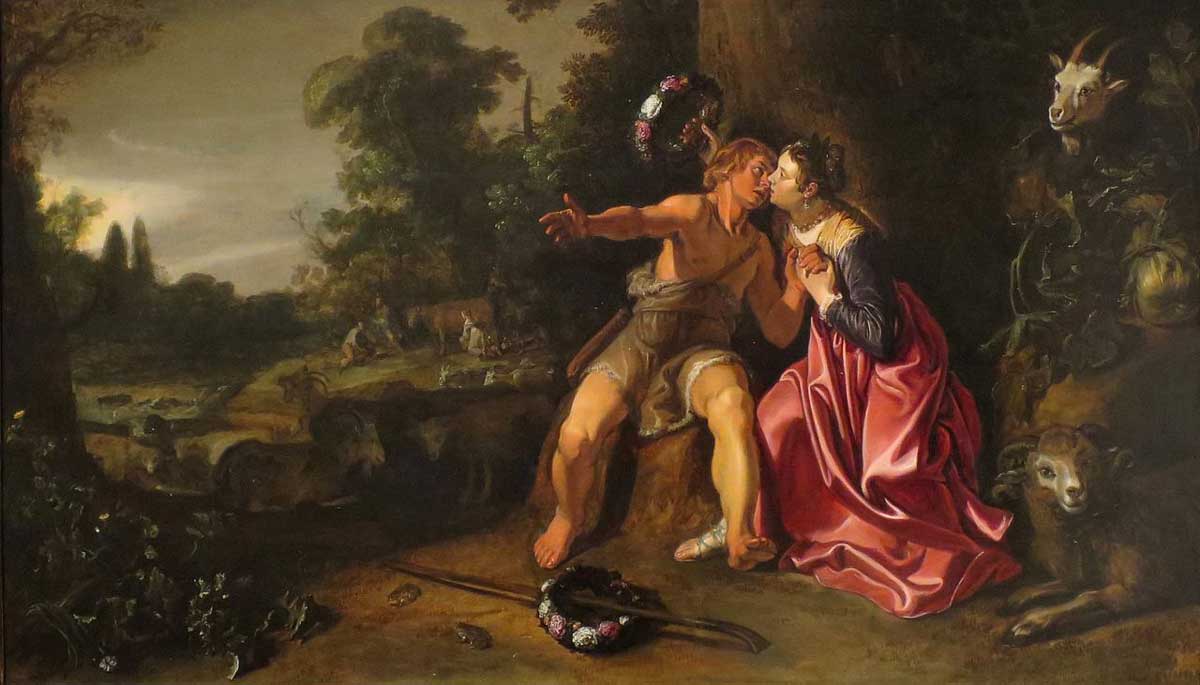
Oenone was a nymph who lived in the woods near Mount Ida, where Paris was born and raised. Oenone and Paris were said to have been deeply in love and were married in a secret ceremony. However, ultimately, Paris abandoned Oenone to claim Helen as his prize in Sparta. According to one version of the myth, after Paris was fatally wounded by Philoctetes’ arrow, he beged Oenone, who was skilled in the art of healing, to aid him. Betrayed by his prior actions, Oenone refuses to help him leading to his tragic downfall. The tale acts as a kind of karmic retribution, as Paris suffers the consequences of his mistreatment of Oenone ironically with his former wife being the only one who can save him.
The Judgment of Paris

Get the latest articles delivered to your inbox
Paris’ mythological notoriety began with the wedding of Peleus and Thetis, where all the gods and goddesses were invited except Eris, the goddess of strife. In her anger, she threw a golden apple into the festivities inscribed with ‘for the fairest’. This sparked a fierce dispute between three of the most powerful goddesses — Hera, Athena, and Aphrodite — each claiming the apple for herself.
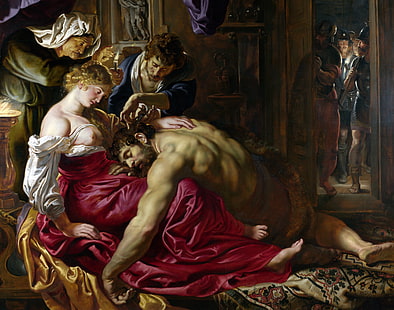
The goddesses appealed to Zeus to resolve the conflict, but he declined to intervene, instead suggesting that Paris, renowned for his beauty, should make the decision. The goddesses offered him lavish bribes in exchange for his favor. Athena promised him wisdom and skill in battle, Hera proposed land and wealth, and Aphrodite offered him the love of the most beautiful woman in the world, Helen of Sparta. Paris, being a notorious womanizer, chose the bribe offered by Aphrodite provoking the wrath of Hera and Athena. The story of the “Judgment of Paris” has been depicted in art and literature throughout the ages, remaining one of the most famous tales in Greek mythology.
Abductor or Lover?
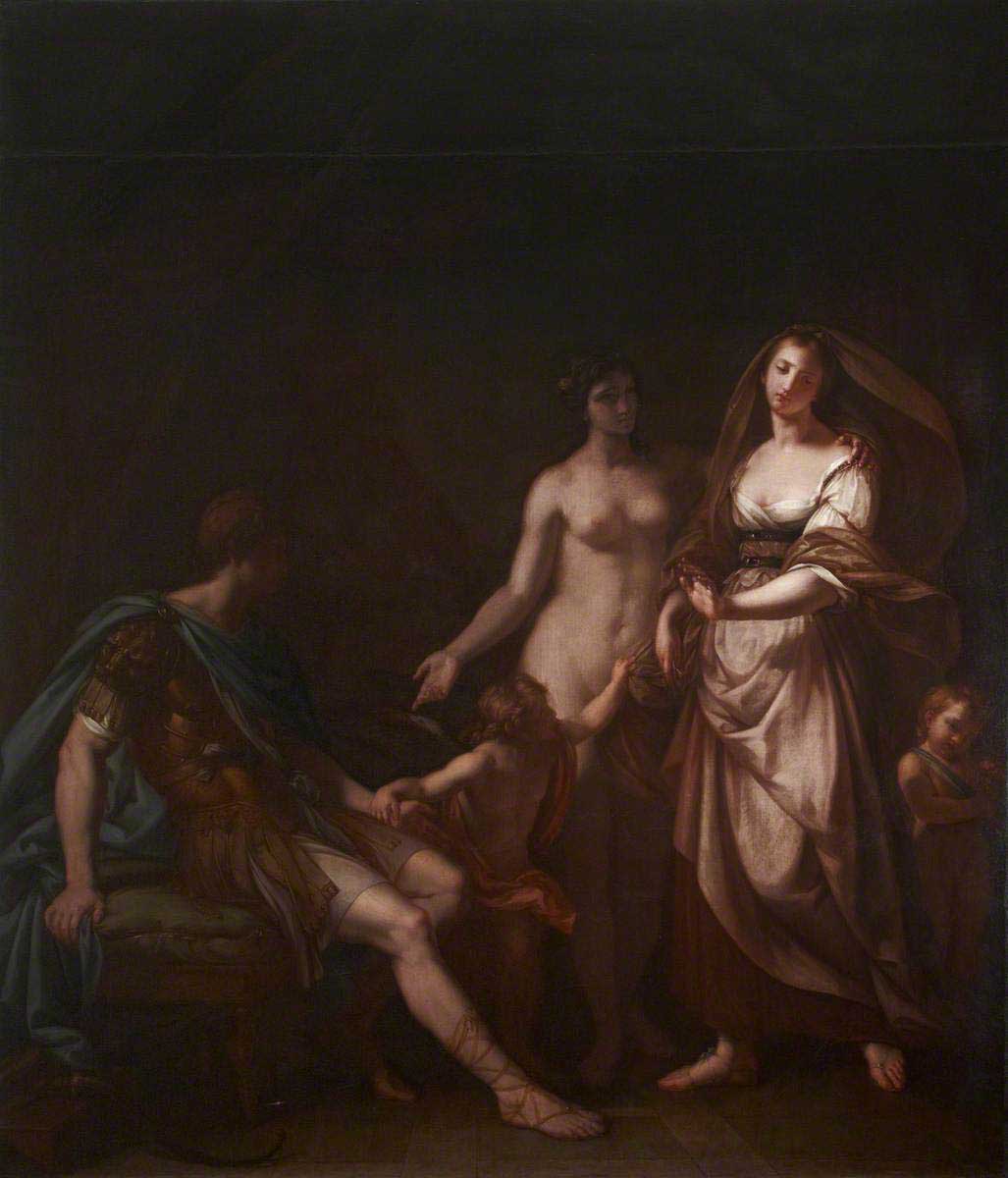
Thus, Paris embarked on a mission to Sparta as a guest of King Menelaus to retrieve his wife, Helen. The manner in which Paris abducted Helen remains a matter of debate. Some accounts suggest that Paris managed to sneak into Helen’s chambers convincing her to run away with him, while others assert that he used force to take her from the palace. Regardless of the precise method, the act was a violation of Helen’s status as a married woman and a significant breach of the diplomatic norms of the time. King Menelaus, outraged by the insult to his honor, called upon his allies to help him launch an expedition to retrieve Helen and punish those responsible for her abduction. This ultimately led to the decade-long Trojan War, which saw the armies of Greece clash with those of Troy in a monumental struggle for honor and vengeance.
The Archer of the Iliad Who Killed Achilles

On the one hand, the Paris of Homer’s Iliad is depicted as a handsome and charming young man motivated by his love for Helen and his belief that she is destined to be his. Despite his status as a mythological hero, Paris is primarily portrayed as a cowardly and inexperienced warrior, who frequently shirked combat and relied on others to protect him. Significantly, a climatic episode of the Iliad is the altercation between Paris and Menelaus. The fight between Paris and Menelaus is depicted as a back-and-forth struggle, with each warrior displaying their martial skills and strategic acumen. Menelaus, however, is clearly the superior warrior and, as the fight reaches its climax, he prepares to deal the death blow to Paris. But the goddess Aphrodite intervenes, whisking Paris away from the battlefield and returning him safely to Troy. The fight is thus interrupted, leaving Menelaus feeling cheated of his revenge and adding to the growing tension between the two sides. The episode serves to depict the Spartan king as a paragon of Grecian honor and valor, while Paris is depicted as lacking in courage.
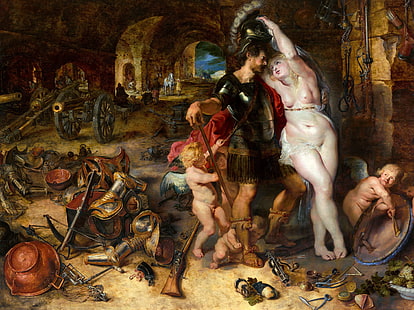
The Iliad, also, focuses on Paris’ ability to strike down his enemies from a distance with his bow and arrows. This skill significantly featured in Book 11 when he returns to the battlefield after a period of cowardice and turns the tide of the war in favor of the Trojans, wounding many Greek warriors including the hero Diomedes. Paris’ archery skills also serve to reinforce certain character traits, particularly his vanity and cowardice. His preference for ranged weaponry contributed to his lack of courage, being unwilling to engage in hand-to-hand combat in contrast to the other warriors. In addition, his excessive self-admiration and boasting of his abilities add to the negative description of his character.
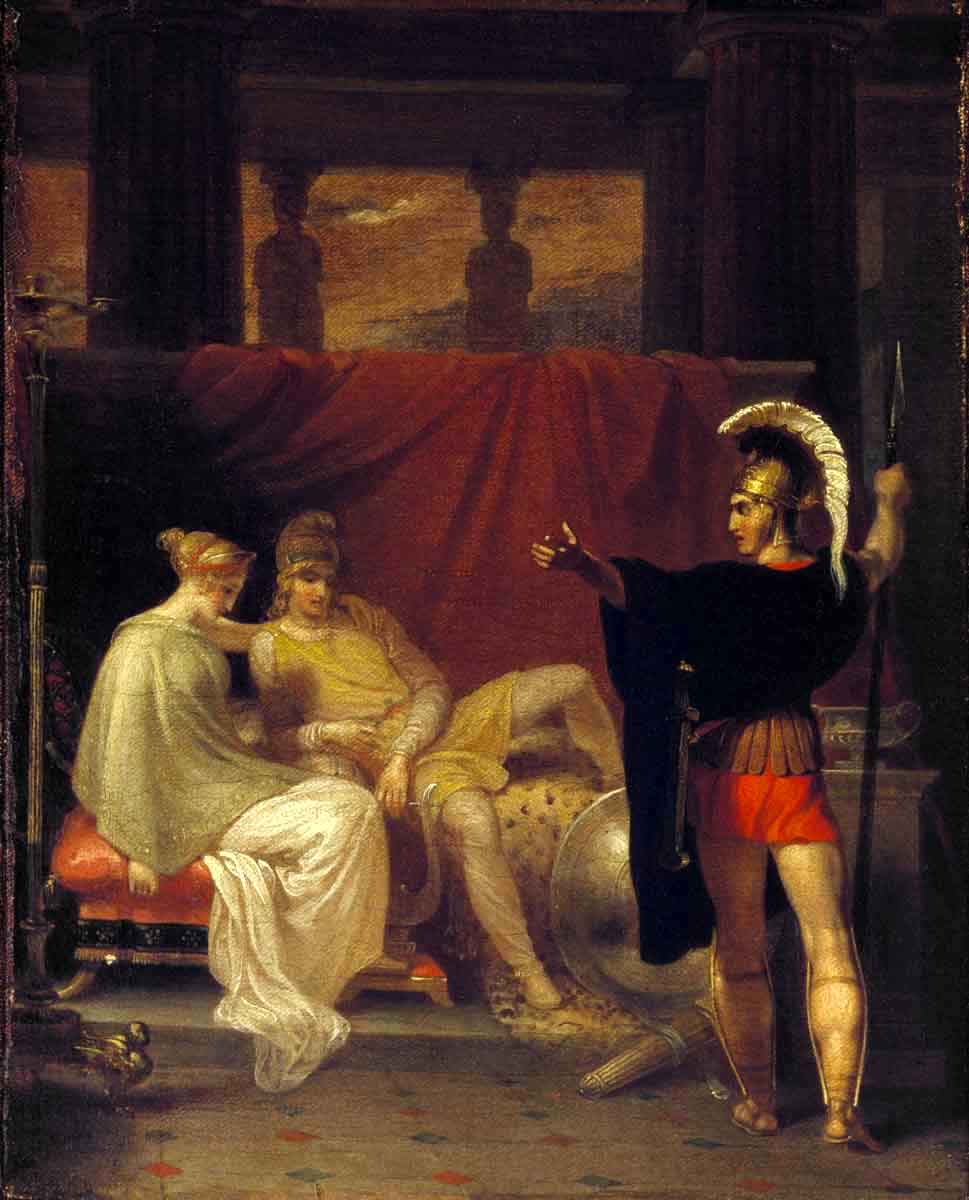
The Trojan prince is also depicted as selfish and irresponsible, interested in his own pleasure rather than the welfare of his people. After Paris’ duel with Menelaus ends inconclusively due to Aphrodite’s intervention, Hector — Paris’ courageous brother — finds Paris lounging in his quarters with his wife, Helen. Hector berates Paris for shirking his responsibilities as a prince of Troy and for causing the Trojan War by abducting Helen. He tells Paris that he is not fit to lead the Trojan army and that he should return Helen to the Greeks to end the war. The relationship between the two brothers becomes increasingly strained as the war drags on and Paris’ actions result in increasing devastation.
How Did Paris of Troy Die?

Famously, Achilles the greatest warrior of the Greek army, was killed by an arrow to the heel, his only vulnerable spot, shot by none other than Paris. Ironically, regardless of his skill with the bow and arrow, it was ultimately this very weapon that brought about Paris’ downfall. While the details of Paris’ death are not described in detail in the Iliad, it is suggested that he died in the final battle for Troy.
However, in later versions of the myth, the circumstances of his death are revealed in greater detail being killed by Philoctetes. During the journey to Troy, the Greek hero was originally abandoned on the island of Lemnos due to his festering wound caused by a snake. Philoctetes endured ten years of isolation on Lemnos before being rescued by the Greek hero, Neoptolemus, who had been sent to retrieve the bow of Heracles to end the Trojan War. With Philoctetes’ help, the Greeks were able to win the war, his role in killing the Trojan prince being especially significant.
The Legacy of Paris of Troy
